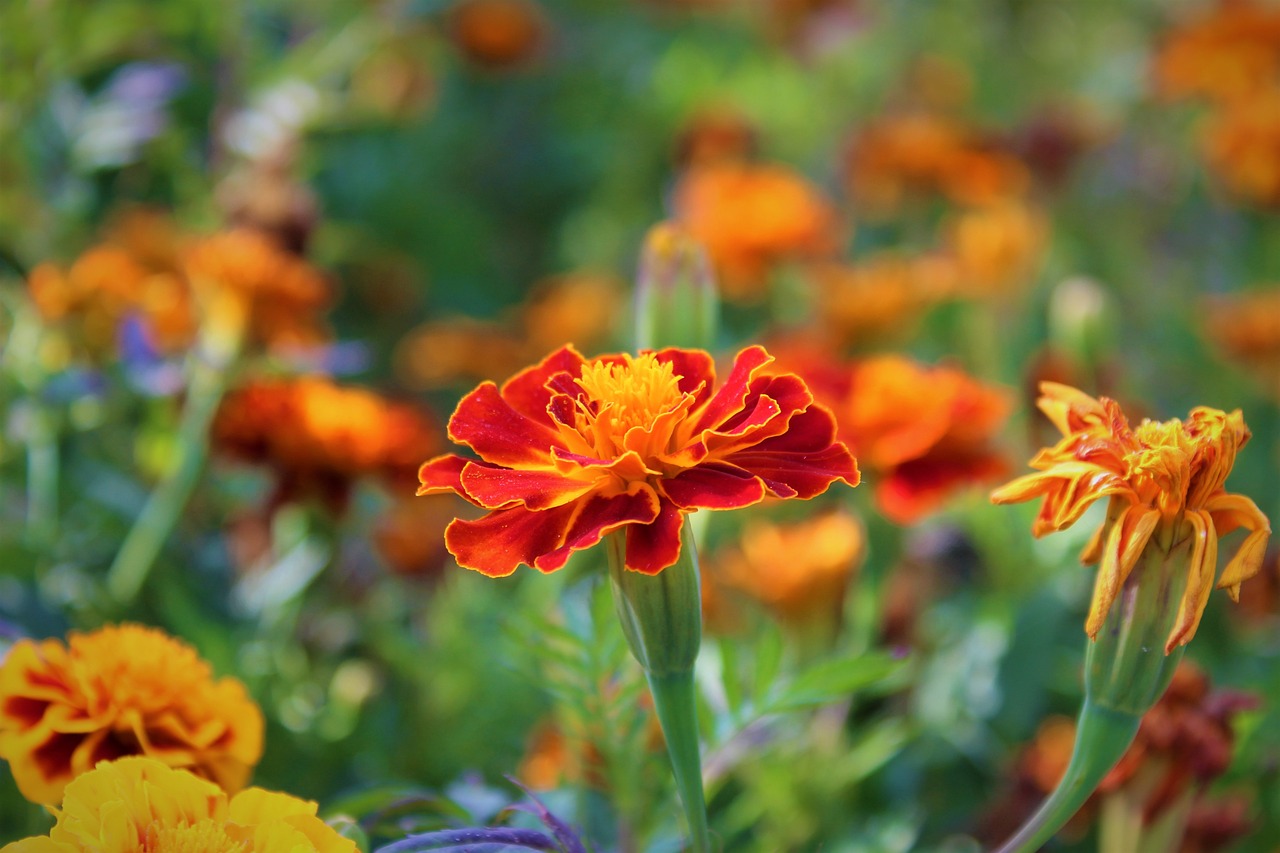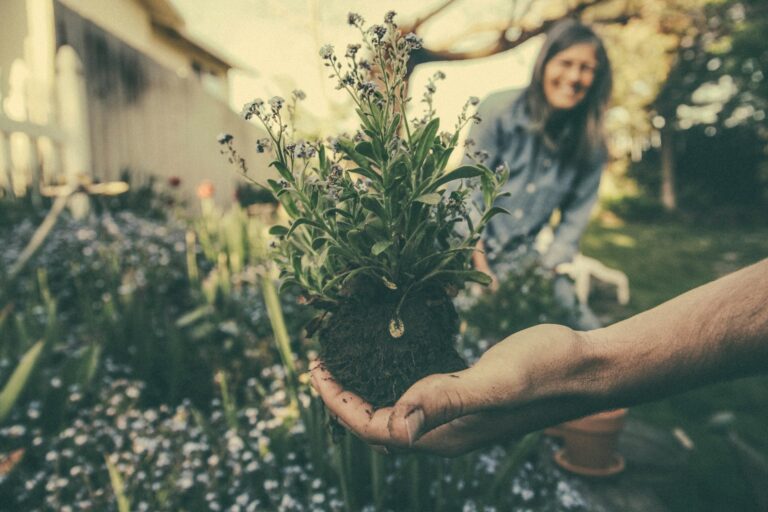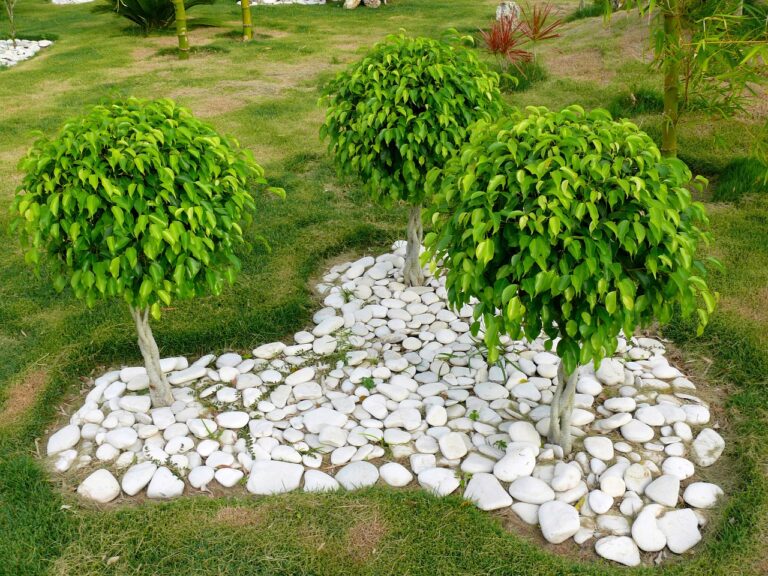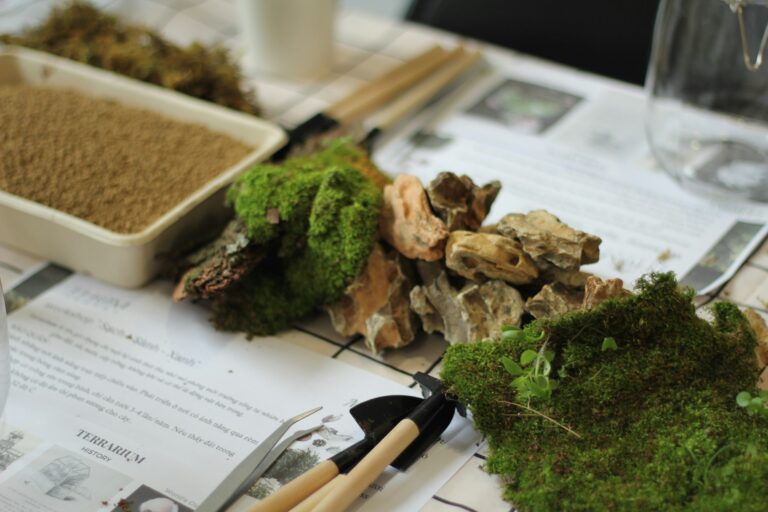In the battle against household pests, flies often prove to be persistent adversaries. Beyond their annoyance, flies can also pose health risks by spreading diseases.
While chemical repellents and traps are common solutions, many gardeners seek natural alternatives to keep these pests at bay. One effective and eco-friendly approach is using the power of plants known for their ability to repel flies.
It’s possible to create a natural barrier that discourages flies from invading living areas by strategically incorporating these plants into gardens, patios, or even indoor spaces. This guide explores some of the best plants renowned for their fly-repelling properties, offering both practical advice and insights into how these green allies can enhance both aesthetics and pest control efforts in your home environment.
Plants that can repel flies.
These plants include:
- Basil (Ocimum basilicum)
- Bay Leaves (Laurus nobilis)
- Catnip (Nepeta cataria)
- Citronella (Cymbopogan)
- Lavender (Lavandula)
- Marigolds (Tagetes)
- Mint (Mentha)
- Parsley (Petroselinum)
- Rosemary (Rosmarinus officinalis)
- Sage (Salvia officinalis)
- Venus Fly Trap (Dionaea muscipula)
- Petunias
Basil (Ocimum basilicum)
Basil is a popular culinary herb known for its strong, pleasant aroma.
This aroma is derived from essential oils such as linalool and eugenol, which not only make it a favorite in cooking but also act as natural insect repellents. Flies find the scent of basil overwhelming and tend to avoid areas where it is present.
Mint varieties like lemon basil or cinnamon basil have even stronger scents, making them particularly effective against flies. Planting basil in pots near entryways, windows, or outdoor seating areas can help keep flies away.
Additionally, harvesting and using fresh basil leaves in cooking releases more of its fragrance, providing ongoing fly deterrent benefits.
Bay Leaves (Laurus nobilis)
Bay leaves, commonly used in cooking for their aromatic properties, also have insect-repellent qualities.
The strong fragrance of bay leaves, attributed to compounds like eucalyptol and pinene, is disliked by flies. Placing dried bay leaves on pantry shelves or scattering them around food storage areas can help deter flies from landing on or near stored food.
For outdoor use, growing a bay laurel tree near doors or windows can create a natural barrier against flies trying to enter your home.
Catnip (Nepeta cataria)
Catnip is a member of the mint family and contains a compound called nepetalactone, which is known for its strong repellent effects on insects, including flies and mosquitoes.
The scent of catnip is highly attractive to cats but repels insects, making it a valuable addition to gardens or outdoor seating areas.
Plant catnip in pots or garden beds to deter flies naturally. Be aware that catnip can spread vigorously, so it’s best contained in controlled areas.
Citronella (Cymbopogon)
Citronella grass is famous for its use in candles and oils designed to repel mosquitoes, but it also works effectively against flies.
The strong citrus-like scent of citronella masks the odors that attract flies, making it less likely for them to gather in treated areas.
Planting citronella grass in large pots or garden borders around patios, decks, or entryways can create a natural barrier against flies and other flying insects.
Lavender (Lavandula)
Lavender is well-known for its calming fragrance and beautiful purple flowers, but it also serves as a natural fly repellent.
The essential oils found in lavender plants, such as linalool and linalyl acetate, produce a scent that flies find unpleasant. Plant lavender in sunny areas near windows, doors, or outdoor seating areas to discourage flies from entering living spaces.
Dried lavender can also be used in sachets indoors to repel flies in confined areas like closets or pantry shelves.
Marigolds (Tagetes)
Marigolds are bright, colorful flowers that not only add beauty to gardens but also possess insect-repellent properties.
They contain compounds like pyrethrin, which is commonly used in insecticides due to its effectiveness against insects. Planting marigolds in garden beds, borders, or pots around outdoor living spaces can help repel flies while attracting beneficial pollinators like bees and butterflies.
Mint (Mentha)
Mint plants, such as spearmint or peppermint, are well-known for their refreshing aroma and culinary uses.
Their strong scent is derived from essential oils like menthol, which flies find unpleasant. Planting mint in pots or garden beds near doorways, windows, or outdoor dining areas can help deter flies from entering living spaces.
Crush a few mint leaves to release more of their fragrance, enhancing their fly-repelling effects. However, mint can spread rapidly, so it’s best contained in pots or in areas where its growth can be managed.
Parsley (Petroselinum)
Parsley is a versatile herb used in various cuisines, known for its fresh, slightly peppery flavor.
Its strong aroma is attributed to compounds like myristicin and apiol, which also act as natural insect repellents. Planting parsley in herb gardens, window boxes, or containers near doors and windows can help keep flies away from indoor living spaces.
Regularly harvesting parsley leaves for culinary use releases its scent, contributing to its fly-repelling properties.
Rosemary (Rosmarinus officinalis)
Rosemary is a woody herb with needle-like leaves and a robust aroma that flies find unpleasant.
Its essential oils, including camphor and pinene, are effective in repelling flies when the plant is grown in pots or garden beds near outdoor seating areas, windows, or doors. Rosemary can also be dried and used as incense to repel flies indoors.
Sage (Salvia officinalis)
Sage is known for its savory flavor in cooking and its ability to repel insects, including flies.
Its strong aroma, derived from essential oils like thujone and cineole, is effective in deterring flies when planted in herb gardens, pots, or garden borders. Burning dried sage leaves as natural incense can also help repel flies indoors.
Venus Fly Trap (Dionaea muscipula)
The Venus Fly Trap is a unique plant that actively captures and consumes insects, including flies.
Native to North and South Carolina in the United States, this carnivorous plant uses specialized leaves with trigger hairs that snap shut when an insect touches them.
While primarily used for educational purposes or as a novelty in homes, placing a Venus Fly Trap in a sunny indoor location can help control small populations of indoor flies effectively.
Petunias
Petunias are popular ornamental plants known for their vibrant and diverse blooms. They are easy to grow and come in a variety of colors, including pink, purple, red, white, and yellow.
Petunias are commonly used in garden beds, hanging baskets, window boxes, and containers.
They emit a subtle fragrance that flies and other pests find unappealing. The exact compounds responsible for this repellent effect are not well-documented, but the overall scent of the plant acts as a deterrent.
FAQs
What smell do flies hate?
Flies hate the smell of several strong scents the most, particularly lavender, citronella, eucalyptus, peppermint, and basil. These aromatic plants and their essential oils effectively repel flies by masking the attractants that draw them in.
Using these scents around your home or outdoor spaces can create an environment that flies find unpleasant, helping to keep them at bay.
What is the best homemade fly repellent?
The best homemade fly repellent is a mixture of essential oils and water. Combine equal parts of water and witch hazel or apple cider vinegar in a spray bottle, then add 20-30 drops of essential oils such as lavender, eucalyptus, peppermint, or citronella.
Shake well and spray around your home, especially near windows, doors, and outdoor seating areas, to effectively keep flies at bay with this natural, pleasant-smelling solution.
What is the fastest way to get rid of flies outside?
The fastest way to get rid of flies outside is to use a combination of quick-acting methods. Set up fly traps or fly zappers around your outdoor area to catch flies immediately. Additionally, spray areas with a mixture of water and essential oils like peppermint, eucalyptus, or citronella, which repels flies effectively.
Remove any sources of attraction such as garbage, pet waste, and standing water, and ensure food is covered to minimize fly presence. This multi-faceted approach quickly reduces the fly population and keeps them from returning.




